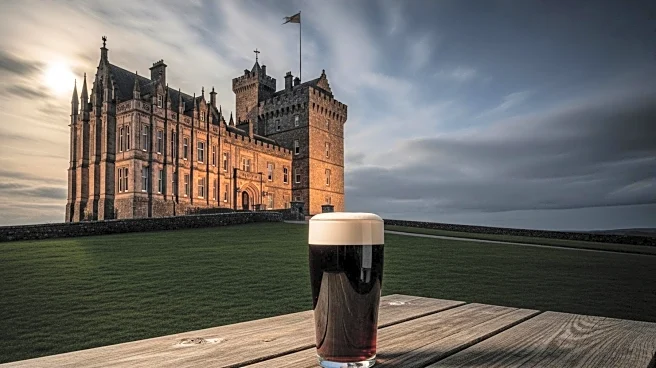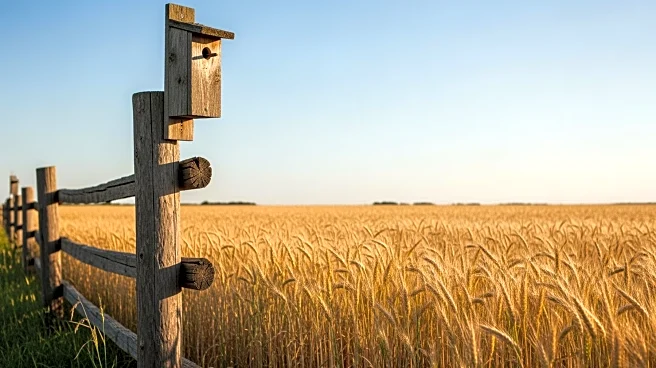What's Happening?
The Netflix series 'House of Guinness' has sparked significant criticism from Irish critics despite its popularity among American and British audiences. The show, which is set in 1860s Dublin and follows the Guinness brewing dynasty, has been praised for its cast and cinematography. However, Irish reviewers have condemned its portrayal of Ireland's history, dialogue, and costumes. Critics argue that the series offers a superficial understanding of Ireland's colonial past and misrepresents historical figures and events. The show, which features a mix of Irish and British actors, has been accused of using clichés and lacking authenticity in its depiction of Irish culture and politics.
Why It's Important?
The backlash against 'House of Guinness' highlights the ongoing sensitivity around cultural representation and historical accuracy in media. For Netflix, the criticism underscores the challenges of producing content that resonates with local audiences while appealing to a global viewership. The series' reception may influence future productions that aim to depict historical events, particularly those involving complex colonial histories. The controversy also reflects broader discussions about the portrayal of national identities and the responsibilities of content creators in representing cultural narratives accurately.
What's Next?
As the series continues to air, it is likely that Netflix will monitor audience reactions and critical feedback closely. The streaming platform may consider engaging with Irish cultural experts to address the criticisms and improve future content. Additionally, the show's creators might respond to the backlash by clarifying their artistic intentions or making adjustments in subsequent seasons. The reaction from Irish audiences could also prompt other media companies to reassess their approach to historical dramas set in culturally sensitive contexts.
Beyond the Headlines
The criticism of 'House of Guinness' raises questions about the ethical responsibilities of filmmakers in portraying historical events. The series' reception may lead to increased scrutiny of how media representations can perpetuate stereotypes or misinform audiences about historical realities. This situation could encourage a broader dialogue about the importance of cultural sensitivity and accuracy in storytelling, potentially influencing industry standards and practices.








